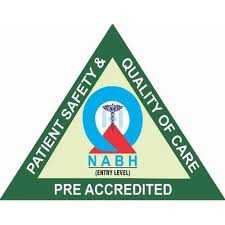
Our eyes are one of the most precious and hardworking organs in our bodies. They play a crucial role in our daily lives, allowing us to navigate the world, appreciate beauty, and perform essential tasks. However, like any other part of our body, our eyes require proper nourishment to function optimally and maintain good vision throughout our lives. Fortunately, nature has provided us with a wealth of nutrients that can support and protect our eyes from various age-related conditions and diseases. In this comprehensive guide, we’ll explore the best nutrients for healthy eyes and their sources.
1. Lutein and Zeaxanthin
Lutein and zeaxanthin are two powerful antioxidants that belong to the carotenoid family. These nutrients are naturally found in the macula, the central part of the retina responsible for sharp, central vision. They act as a natural sunblock, protecting the eyes from harmful blue light and UV radiation, which can contribute to the development of age-related macular degeneration (AMD) and cataracts.
Healthy Eyes, Happy Life: The 10 Best Foods to Include in Your Diet
Good sources of lutein and zeaxanthin include:
– Leafy green vegetables (spinach, kale, collard greens)
– Corn
– Egg yolks
– Oranges and orange juice
2. Vitamin C
Vitamin C is a powerful antioxidant that plays a crucial role in eye health. It helps to protect the eyes from oxidative stress, which can lead to cataracts and AMD. Additionally, vitamin C is essential for the production of collagen, a structural protein that helps maintain the integrity of the eye’s blood vessels and cornea.
Good sources of vitamin C include:
– Citrus fruits (oranges, grapefruits, lemons)
– Kiwi
– Bell peppers
– Broccoli
– Strawberries
3. Vitamin E
Vitamin E is another potent antioxidant that can help protect the eyes from oxidative damage. It works in tandem with other antioxidants, such as vitamin C and zinc, to neutralize free radicals that can harm the delicate tissues of the eyes. Vitamin E has also been linked to a reduced risk of developing cataracts and AMD.
Good sources of vitamin E include:
– Nuts and seeds (almonds, sunflower seeds, hazelnuts)
– Vegetable oils (sunflower, safflower, and wheat germ oil)
– Green leafy vegetables
– Avocados
4. Omega-3 Fatty Acids
Omega-3 fatty acids, particularly EPA and DHA, are essential for maintaining the health of the retina and preventing dry eye syndrome. They help regulate intraocular pressure, reducing the risk of glaucoma, and may also play a role in preventing AMD.
Good sources of omega-3 fatty acids include:
– Fatty fish (salmon, tuna, mackerel, sardines)
– Walnuts
– Flaxseeds
– Chia seeds
5. Zinc
Zinc is a mineral that plays a crucial role in eye health. It is involved in the transportation of vitamin A from the liver to the retina, where it is needed for the production of melanin, a protective pigment in the eyes. Zinc also has antioxidant properties, helping to protect the eyes from oxidative damage.
Good sources of zinc include:
– Oysters
– Beef
– Cashews
– Chickpeas
– Spinach
6. Vitamin A
Vitamin A is essential for maintaining good vision, especially in low-light conditions. It plays a vital role in the functioning of the retina and helps protect the cornea, the clear front part of the eye. Vitamin A deficiency can lead to night blindness and an increased risk of dry eye syndrome.
Good sources of vitamin A include:
– Sweet potatoes
– Carrots
– Spinach
– Beef liver
– Dairy products (milk, cheese, yogurt)
While a balanced and nutrient-rich diet is the best way to obtain these essential nutrients for eye health, supplements can be beneficial for individuals who may have difficulty meeting their nutritional needs through food alone. However, it’s always recommended to consult with a healthcare professional before starting any supplement regimen.
See Clearly: How Nutrition Can Improve Your Eye Health
Conclusion:
Maintaining healthy eyes is crucial for optimal vision and overall well-being. By incorporating a variety of nutrient-rich foods into your diet, including leafy greens, citrus fruits, fatty fish, nuts, and seeds, you can provide your eyes with the essential nutrients they need to function properly and reduce the risk of age-related eye conditions. Remember, prevention is key, and taking care of your eyes through proper nutrition is an investment in your long-term vision health.
At Vision Plus Eye Centre, we understand the importance of comprehensive eye care, which includes not only regular eye examinations but also educating our patients on the best practices for maintaining healthy eyes. Our team of experts is dedicated to providing personalized guidance and recommendations to help you make informed choices about your eye health and vision.
Call Now at 0120-2481481, 2480480 +91 88003 13134 or email us at info@visionplus.net.in.
Book an Online Appointment: https://visionplus.net.in/contact/
About Author Bio: Dr. Ritu Aurora, M.S., is a Cataract & Refractive Surgeon. With expertise in these areas, she is dedicated to providing comprehensive eye care and ensuring the well-being of her patients. Dr. Aurora brings a wealth of knowledge and experience to her practice.

